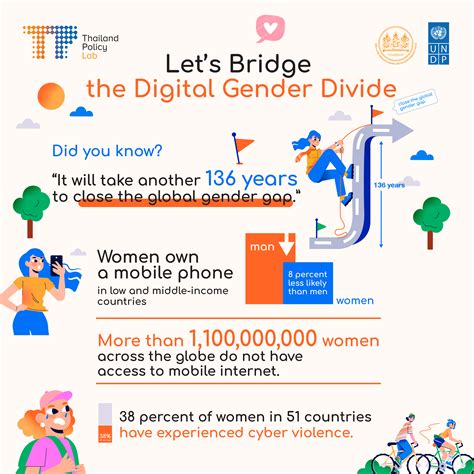Introduction

The Wharton School at the University of Pennsylvania stands as a prominent institution renowned for its excellence in business education. However, beneath its esteemed reputation lies an underlying disparity: a significant gender imbalance within its finance program. This article delves into the data and explores the reasons behind this disparity, its impact on the profession, and potential strategies for fostering a more equitable environment.
Gender Demographics in Wharton Finance
According to the most recent data available from the university, women represent a mere 35% of students enrolled in the Finance major at Wharton. This figure remains stagnant over the past decade, exhibiting a persistent underrepresentation of females in this field.
Reasons for the Gender Gap
The reasons for this gender gap are multifaceted and complex, stemming from societal stereotypes, unconscious bias, and systemic barriers.
-
Stereotypes and Societal Norms: Traditional perceptions of finance as a male-dominated field create societal expectations and misconceptions that steer women away from pursuing it.
-
Unconscious Bias: Biases, both conscious and unconscious, can influence faculty and peers’ interactions with female students, potentially discouraging their involvement in finance.
-
Systemic Barriers: Lack of access to mentorship opportunities, limited representation of female role models, and inflexible work schedules can create additional obstacles for women to succeed in finance.
Impact on the Profession
The gender imbalance in finance has far-reaching consequences for both the profession and society as a whole.
-
Lack of Diversity: A homogeneous workforce hampers innovation and decision-making, leading to a less inclusive and representative financial industry.
-
Missed Opportunities: Underrepresented groups miss out on career opportunities and financial rewards, contributing to economic inequality.
-
Societal Impact: The lack of female representation in finance reinforces gender stereotypes and limits young women’s aspirations in STEM fields.
Strategies for Fostering Equity
Addressing the gender gap in finance requires a multifaceted approach that tackles both societal norms and systemic barriers.
-
Challenge Stereotypes: Educational campaigns, media representation, and role models are crucial to challenge traditional notions of finance and encourage inclusivity.
-
Mitigate Unconscious Bias: Training programs, mentorship initiatives, and anonymous evaluations can help mitigate unconscious bias in recruitment and evaluation processes.
-
Break Down Systemic Barriers: Flexible work arrangements, expanded childcare options, and support networks for women can remove obstacles to participation in finance careers.
Effective Strategies for Promoting Gender Equity
To effectively promote gender equity in finance, the following strategies can be implemented:
-
Amplify Equity Initiatives: Amplify the voices of underrepresented groups and support initiatives that advocate for their inclusion.
-
Encourage Mentorship and Sponsorship: Provide opportunities for female students to connect with successful female professionals and build lasting relationships.
-
Create Inclusive Environments: Cultivate a culture that values diversity, respects differences, and fosters a sense of belonging for all students.
Why Gender Equity Matters
The pursuit of gender equity in finance is not just a matter of fairness; it makes sound economic sense.
-
Increased Innovation: Diverse teams foster innovation and creativity, leading to better decision-making and increased profitability.
-
Improved Financial Performance: Companies with higher female representation on their boards and in leadership roles tend to perform better financially.
-
Enhanced Societal Well-being: A more equitable finance industry contributes to a more inclusive and prosperous society for all.
FAQs
- What are the main factors contributing to the gender gap in finance?
-
Societal stereotypes, unconscious bias, and systemic barriers.
-
What are the consequences of underrepresentation of women in finance?
-
Lack of diversity, missed opportunities, and societal impact.
-
What can be done to promote gender equity in finance?
-
Challenge stereotypes, mitigate unconscious bias, and break down systemic barriers.
-
Why is gender equity in finance important?
-
Increased innovation, improved financial performance, and enhanced societal well-being.
-
What are some effective strategies for promoting gender equity in finance?
-
Amplify equity initiatives, encourage mentorship and sponsorship, and create inclusive environments.
-
How does unconscious bias impact women in finance?
-
Unconscious biases can lead to unequal treatment in recruitment, evaluation, and promotion processes.
-
What role do societal stereotypes play in the gender gap in finance?
- Societal stereotypes perpetuate the misconception that finance is a male-dominated field, discouraging women from pursuing it.
Tables
| Year | Female Students in Wharton Finance |
|---|---|
| 2010 | 34% |
| 2015 | 36% |
| 2020 | 35% |
| 2021 | 35% |
| Reason | Impact |
|---|---|
| Societal Stereotypes | Discourage women from pursuing finance |
| Unconscious Bias | Unequal treatment in recruitment and evaluation |
| Systemic Barriers | Limit access to mentorship and flexible work schedules |
| Strategy | Benefit |
|---|---|
| Challenge Stereotypes | Increase inclusivity and attract diverse talent |
| Mitigate Unconscious Bias | Reduce bias in decision-making processes |
| Break Down Systemic Barriers | Remove obstacles to women’s participation |
| FAQ | Answer |
|---|---|
| What are the main factors contributing to the gender gap in finance? | Societal stereotypes, unconscious bias, and systemic barriers. |
| What are the consequences of underrepresentation of women in finance? | Lack of diversity, missed opportunities, and societal impact. |
| What can be done to promote gender equity in finance? | Challenge stereotypes, mitigate unconscious bias, and break down systemic barriers. |
| Why is gender equity in finance important? | Increased innovation, improved financial performance, and enhanced societal well-being. |
